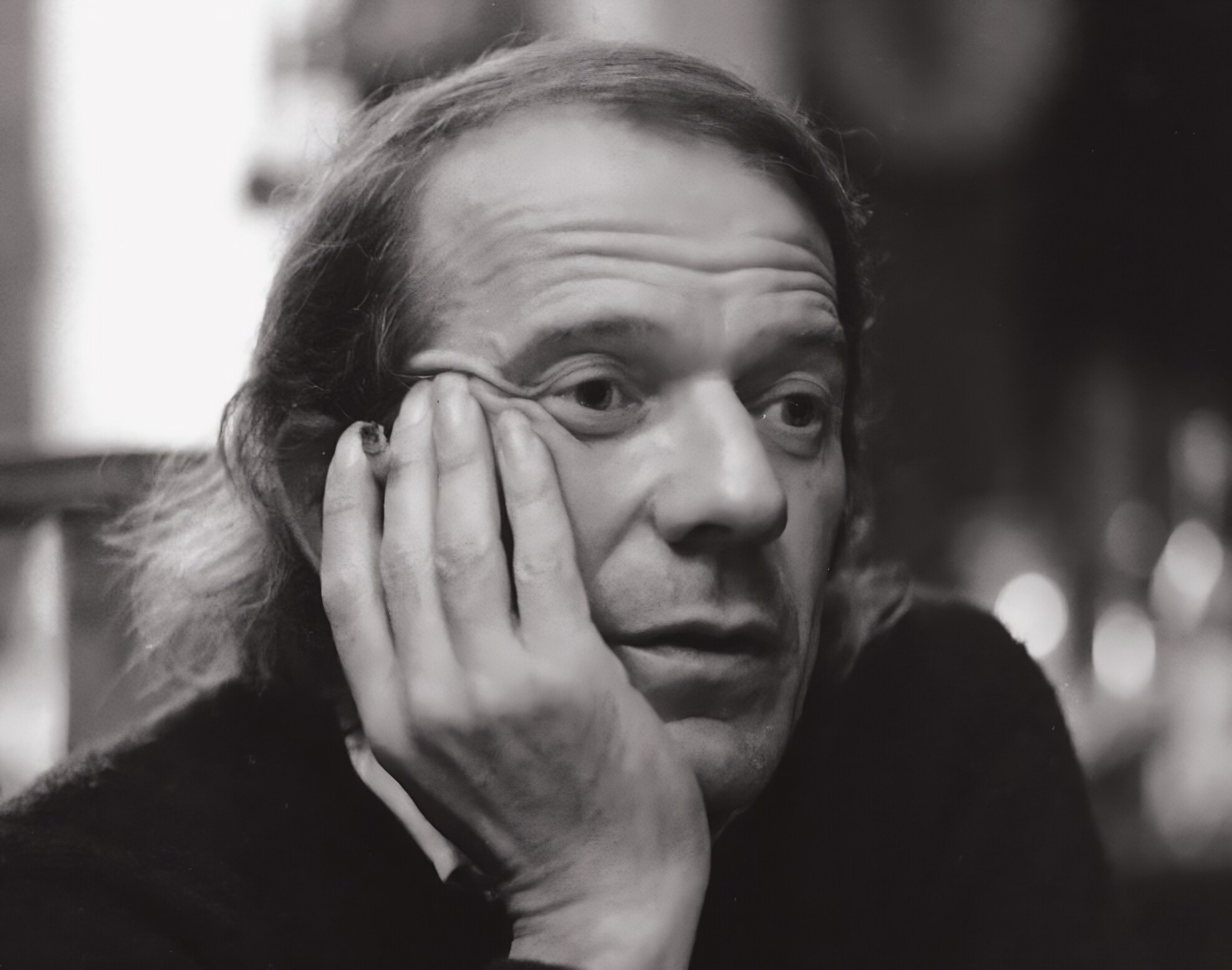
Gilles Deleuze, a renowned philosopher of the 20th century, is a figure whose intellectual contribution has left a lasting impact on various fields such as philosophy, literature, art, and sociology. His revolutionary ideas and unique approach to understanding the world have challenged traditional modes of thinking and have opened up new possibilities for critical inquiry.
In this article, we will delve into 20 astonishing facts about Gilles Deleuze, exploring his life, his philosophical concepts, his collaborations, and his influence on contemporary thought. From his groundbreaking works on the concept of multiplicity and rhizomatic thinking to his profound analysis of the relationship between desire and capitalism, Deleuze’s ideas continue to provoke and inspire scholars and intellectuals alike.
Prepare to be amazed as we uncover the intriguing facets of Gilles Deleuze’s life and work, shedding light on his contributions that have shaped the philosophical landscape.
Key Takeaways:
- Gilles Deleuze was a groundbreaking philosopher who challenged traditional ideas and emphasized the importance of change and interconnectedness in his work.
- His collaboration with Guattari, exploration of affect, and emphasis on creating new concepts have left a lasting impact on philosophy and beyond.
Gilles Deleuze was a renowned philosopher.
Gilles Deleuze, born on January 18, 1925, in France, was a prominent figure in the field of philosophy. His groundbreaking ideas and unique perspective have greatly influenced contemporary philosophy.
Deleuze was known for his collaboration with Félix Guattari.
One of the notable aspects of Deleuze’s career was his collaboration with fellow philosopher Félix Guattari. Together, they produced influential works such as “Anti-Oedipus” and “A Thousand Plateaus,” which explored various concepts and critiques of psychoanalysis and capitalism.
He wrote extensively on the concept of rhizome.
Deleuze’s concept of the rhizome, inspired by botany, challenged traditional hierarchical structures and emphasized the interconnectedness and multiplicity of ideas. This notion became a central theme in his philosophical works.
Deleuze had a profound interest in cinema.
Aside from philosophy, Deleuze had a passion for cinema. He wrote extensively on the subject and explored the relationship between film and philosophy in his influential book “Cinema 1: The Movement-Image” and its sequel “Cinema 2: The Time-Image.
His works encompassed a wide range of topics.
Deleuze touched upon various disciplines and subjects in his writings, including aesthetics, literature, language, politics, and the concept of desire. His interdisciplinary approach contributed to the richness and complexity of his philosophical ideas.
Deleuze was a professor at the University of Paris.
For many years, Deleuze held a position as a professor at the University of Paris. His lectures and teachings attracted students from all over the world, and his ideas continue to inspire generations of scholars and thinkers.
He emphasized the importance of becoming over being.
A fundamental aspect of Deleuze’s philosophy is the idea that becoming, or the process of change and transformation, holds more significance than fixed states of being. He rejected static definitions and instead focused on dynamic and fluid concepts.
Deleuze’s concept of the “Body without Organs” challenged conventional notions of identity.
The concept of the “Body without Organs” proposed by Deleuze and Guattari questioned the traditional understanding of the body as a distinct, defined entity. Instead, it suggested a multiplicity of intensities and connections that defy easy categorization.
He had a deep interest in the ideas of philosophers such as Nietzsche and Spinoza.
Deleuze drew inspiration from various philosophers throughout history. The works of Friedrich Nietzsche and Baruch Spinoza were particularly influential in shaping his philosophical framework.
Deleuze’s concept of “difference” challenged binary oppositions.
Central to Deleuze’s thinking was his notion of “difference” as a productive force that disrupts traditional dichotomies and opens up new possibilities. This concept has had a profound impact on fields such as post-structuralism and cultural studies.
His writings explored the concept of affect.
Deleuze delved into the notion of affect, emphasizing the ways in which it shapes our experiences and relationships. His exploration of affectivity challenged traditional understandings of emotions and paved the way for new ways of thinking about affective processes.
Deleuze was not only a philosopher but also an activist.
Throughout his life, Deleuze actively participated in political and social movements. His engagement with activism reflected his belief in the transformative power of collective action and the potential for social change.
He had a unique writing style characterized by innovative use of language.
Deleuze’s philosophical writings are renowned for their distinctive style, characterized by creative and unconventional use of language. His texts often employ unique vocabulary and sentence structures, challenging traditional forms of expression.
Deleuze’s ideas have influenced numerous disciplines beyond philosophy.
The impact of Deleuze’s philosophy extends far beyond the realm of philosophy itself. His concepts and theories have had a significant influence on fields such as cultural studies, film theory, art, literature, and architecture.
Deleuze believed in the power of the virtual.
Deleuze’s concept of the virtual referred to a realm of potentiality and becoming that exists alongside the actual. He argued that the virtual is not a mere possibility but a dynamic force that continuously interacts with the actual, shaping our experiences and realities.
Many of Deleuze’s writings were produced in collaboration with Guattari.
Deleuze and Guattari’s collaboration resulted in several groundbreaking works, where their distinct ideas merged to create a unique philosophical perspective. These joint works have become influential texts in contemporary philosophy.
Deleuze explored the concept of intensive multiplicities.
Intensive multiplicities, a term coined by Deleuze, refers to the complex and dynamic networks of relations that exist within systems. This concept challenges simplistic understandings of identity and highlights the interconnectedness of diverse elements.
His work emphasized the importance of creating new concepts.
Deleuze believed in the necessity of constantly creating new concepts to escape the limitations of established ways of thinking. He saw the act of conceptualization as a form of creative resistance and an opportunity to disrupt traditional modes of thought.
Deleuze’s philosophy questioned the notion of a fixed self.
Rejecting the idea of a fixed, essential self, Deleuze emphasized the constant process of becoming and the transformative potential of individual and collective experiences. His philosophy urged individuals to embrace change and embrace the complexities of their existence.
He left a lasting legacy in the world of philosophy.
Gilles Deleuze’s profound ideas and contributions have cemented his place in the history of philosophy. His influence can still be felt in contemporary philosophical discussions and continues to inspire scholars, thinkers, and artists around the world.
Conclusion
In conclusion, Gilles Deleuze was a remarkable philosopher whose ideas have had a profound impact on various fields of study, including philosophy, sociology, and cultural theory. His concepts, such as rhizome, simulacrum, and becoming, have challenged traditional modes of thinking and opened up new possibilities for understanding the complexities of the world.Deleuze’s emphasis on the importance of difference, multiplicity, and non-linear paths of thought has inspired countless scholars and intellectuals to reimagine established systems of knowledge. Through his body of work, Deleuze encourages us to question and challenge existing norms, to embrace the constant process of becoming, and to forge connections between seemingly unrelated ideas.While Gilles Deleuze’s theories may not always be easy to grasp, they offer a unique perspective that invites us to explore the richness and diversity of human experience. By delving into his fascinating ideas, we can gain a deeper understanding of ourselves and the world we inhabit.
FAQs
1. Who was Gilles Deleuze?
Gilles Deleuze was a French philosopher who emerged as a prominent figure in the 20th century. He is known for his groundbreaking ideas in various fields, including philosophy, sociology, and cultural theory.
2. What are some of Gilles Deleuze’s key concepts?
Some of Deleuze’s key concepts include rhizome, simulacrum, and becoming. These ideas challenge traditional modes of thought and offer new ways to understand the complexities of the world.
3. How has Gilles Deleuze influenced modern philosophy?
Gilles Deleuze’s ideas have had a significant impact on modern philosophy, inspiring scholars and intellectuals to question established norms and explore new avenues of thought. His emphasis on difference, multiplicity, and non-linear paths of thinking has reshaped the way we approach various fields of study.
4. What is the significance of Deleuze’s concept of becoming?
Deleuze’s concept of becoming emphasizes the fluidity and constant state of transformation in the world. It encourages us to embrace change and challenge fixed identities, opening up new possibilities for personal and social transformation.
5. How can I delve deeper into Gilles Deleuze’s work?
If you are interested in exploring Gilles Deleuze’s ideas further, there are numerous books and articles available that delve into his philosophical concepts. Some recommended works include “Difference and Repetition,” “Capitalism and Schizophrenia,” and “A Thousand Plateaus.
Gilles Deleuze's astonishing life and ideas continue to captivate philosophers worldwide. His unique perspectives, collaborative spirit with Félix Guattari, and groundbreaking concepts like rhizomes and the "Body without Organs" have left an indelible mark on various fields. Deleuze's activism, innovative writing style, and exploration of the virtual showcase his multifaceted brilliance. Questioning fixed notions of identity and emphasizing the power of creating new concepts, Deleuze's legacy endures as a testament to his profound impact on philosophy. For more fascinating insights into the minds behind these revolutionary ideas, explore the intriguing facts about Deleuze's longtime collaborator and intellectual partner.
Was this page helpful?
Our commitment to delivering trustworthy and engaging content is at the heart of what we do. Each fact on our site is contributed by real users like you, bringing a wealth of diverse insights and information. To ensure the highest standards of accuracy and reliability, our dedicated editors meticulously review each submission. This process guarantees that the facts we share are not only fascinating but also credible. Trust in our commitment to quality and authenticity as you explore and learn with us.


